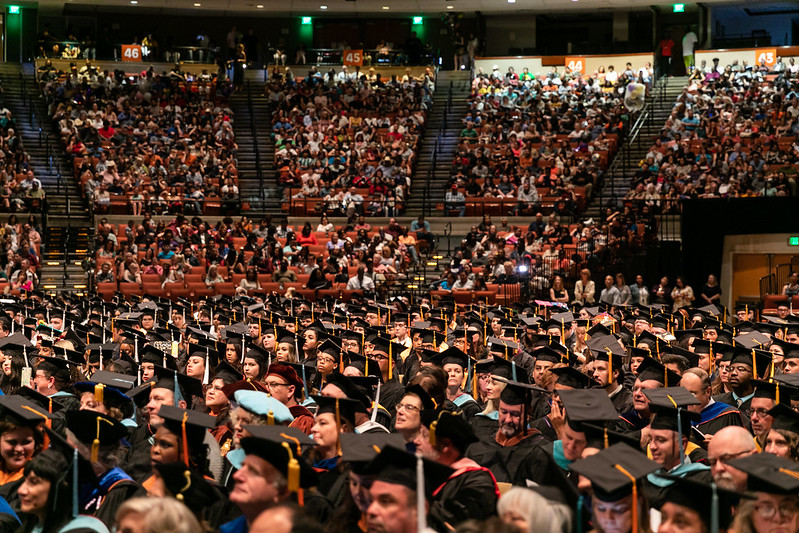ACC doubles graduation rate in one year

ACC expects to double its graduation rate from 7.2% last year to 14.9% in 2020 as a result of a focus on multiple approaches with student retention and success strategies undertaken in recent years.
"This is a testament to the work and dedication our employees have made toward student success," says Dr. Richard Rhodes, ACC president/CEO. "Our commitment to students has always been at the core of our mission, but our graduation rates weren't telling that story. We knew we needed to take a closer look at the roadblocks that were keeping students from reaching their finish line."
The college launched its Guided Pathways initiative in fall 2016 which provided students with clear program maps to graduation and deeper support services including Area of Study orientations, first-year student programs, and enhanced advising and counseling opportunities with one-on-one interactions.
"That's a big change in being much more proactive, being much more intentional about wrap-around supports, and looking holistically," says Dr. Guillermo "Willie" Martinez III, interim vice president of Student Affairs. "Those are great words and all, but the bottom line is, we're trying to help each and every single student."
ACC's graduation rate is calculated the same as four-year institutions, on its full-time, first-time-in-college students. These students make up a small percentage of the student population — out of the roughly 60,000 undergraduate students ACC serves each year, approximately 2,000 students are FT-FTIC — and students have three years to earn a certificate or degree to be counted as a graduate according to the Texas Higher Education Coordinating Board.
Plans are underway to capitalize on the momentum seen in the latest data by implementing innovations like the Learning Lab pilot program for embedding tutors within ACC's Distance Learning courses. For specific skills such as math, students have access to ALEKS, a web-based program focused on refreshing their math knowledge with the goal of placing into a higher-level course.
"It's up to us to try to do a better job of figuring out what our students' goals and dreams are so that we can help along the way," says Dr. Martinez. "Everyone has a unique story. Now, we're just paying attention a little bit more to hear those stories."
Add new comment